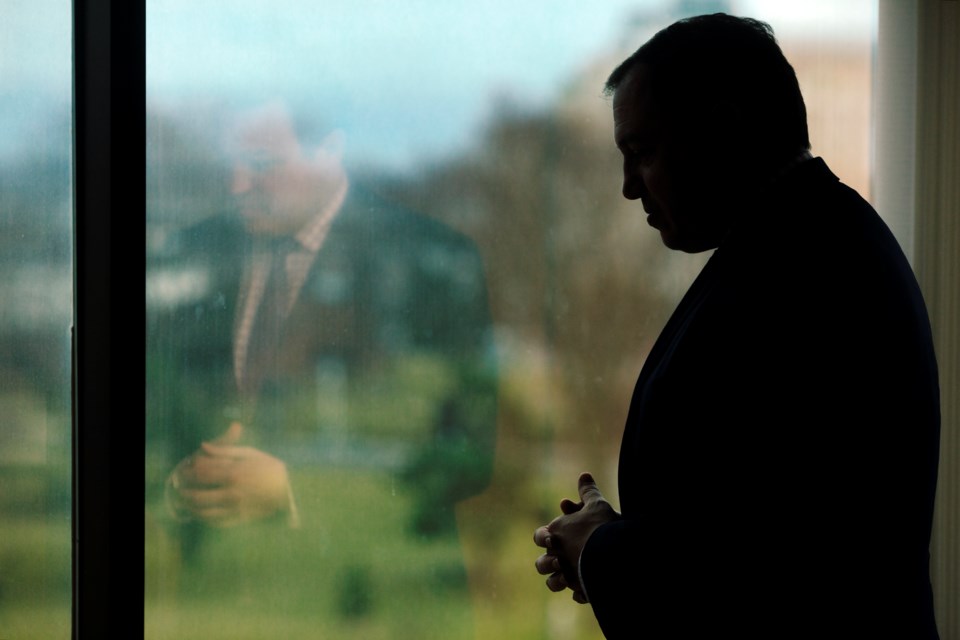Mayor Christian Provenzano says the effects of municipal funding cuts in the areas of public health care and child care – scheduled to roll out gradually in the new year – will definitely be felt in Sault Ste. Marie.
On Monday, Premier Doug Ford told those attending an Association of Municipalities of Ontario (AMO) gathering in Ottawa that some of the municipal cuts will come into effect as early as Jan.1, and will be implemented gradually over the next three years.
Provenzano says that Algoma Public Health is just one example of a provincial service that’s funded in part through municipal taxes.
Effective Jan.1, 2020, 30 per cent of public health care costs will be downloaded by the provincial government to Ontario municipalities.
“The municipal levy doesn’t just fund the municipal operations – the municipal levy also funds some provincial operations,” he told SooToday. “People often don’t realize that their taxes go to pay for things the province is responsible for – one of them is public health, and another is social services.”
Now that the province has pledged to cut funding to some provincial responsibilities, Provenzano says, one of two things is going to happen.
“The agencies are going to be able to make up that loss of revenue, or they’re going to have to raise the amount of revenue they get from the municipal tax levy,” said Provenzano. “So there’s either going to be a reduction in service, or an increase in municipal taxes.”
“Both those things are unfortunate.”
As far as next year’s budget goes, Provenzano says the way municipalities are funded isn’t sufficient enough to provide the services needed for municipalities that don’t have a growing assessment base.
Provenzano says his municipality is “always sensitive” to property tax hikes.
“All of our funding in Sault Ste. Marie is based on property taxes - we don’t have any other sources of revenue,” he said. “We’re not only paying for municipal services with those property taxes, we’re paying for provincial services, and it appears that we’re going to be paying more for the provincial services.”
“This isn’t a sustainable model. It’s hard enough for municipalities to generate the revenue it needs to provide the municipal services through its property tax base,” he continued. “It becomes even more difficult when we have to carry an increased share of the provincial services.”
While many municipal leaders seem relieved at Ford’s announcement that the province is continuing the Ontario Municipal Partnership Fund (OMPF), Provenzano is unsure of what exactly that fund will look like going forward.
“We’re still trying to determine what that’s going to look like next year,” said Provenzano. “What I understood him [Premier Doug Ford] to say was that the structure is going to remain the same. I don’t know if that means the funding levels will remain the same.”
Sault Ste. Marie received $15,455,200 in OMPF funding in 2018, but shelled out $17,821,750 towards provincial programs and services related to community child care, emergency medical services, Ontario Works and social housing.
“The province is actually taking more out of our municipal tax base than it’s putting back in - and with these recent decisions, that’s only going to increase,” said Provenzano. “The gap between what the province is taking out of the municipal tax base is going to grow.”
Ford also used his appearance at the AMO gathering earlier this week to announce that the province will open up its long-awaited Community, Culture and Recreation stream of funding through the federal government’s Investing in Canada Infrastructure Program.
The program, which has been stalled by the Ontario government up until Monday's announcement, could potentially dole out up to $1 billion towards sports arenas, community centres and cultural centres.
The intake process will begin Sept. 3.
Provenzano says the municipality wants to access that funding stream in order to help build the council-approved, $25-million twin ice pad replacement for the five-decade-old W.J. McMeeken Centre.
“We got a project ready to go there, and we’re moving forward on it, and certainly we would like to be able to access those funds,” he said. “The feds have been very clear to us that our project qualifies for the federal part of the funding, but we just couldn’t get there, because the province didn’t open up the window.”
The cuts to municipal funding were originally announced earlier this year by the province, but were scrapped in May following protestations from municipal leaders that their annual budgets had already been passed.
